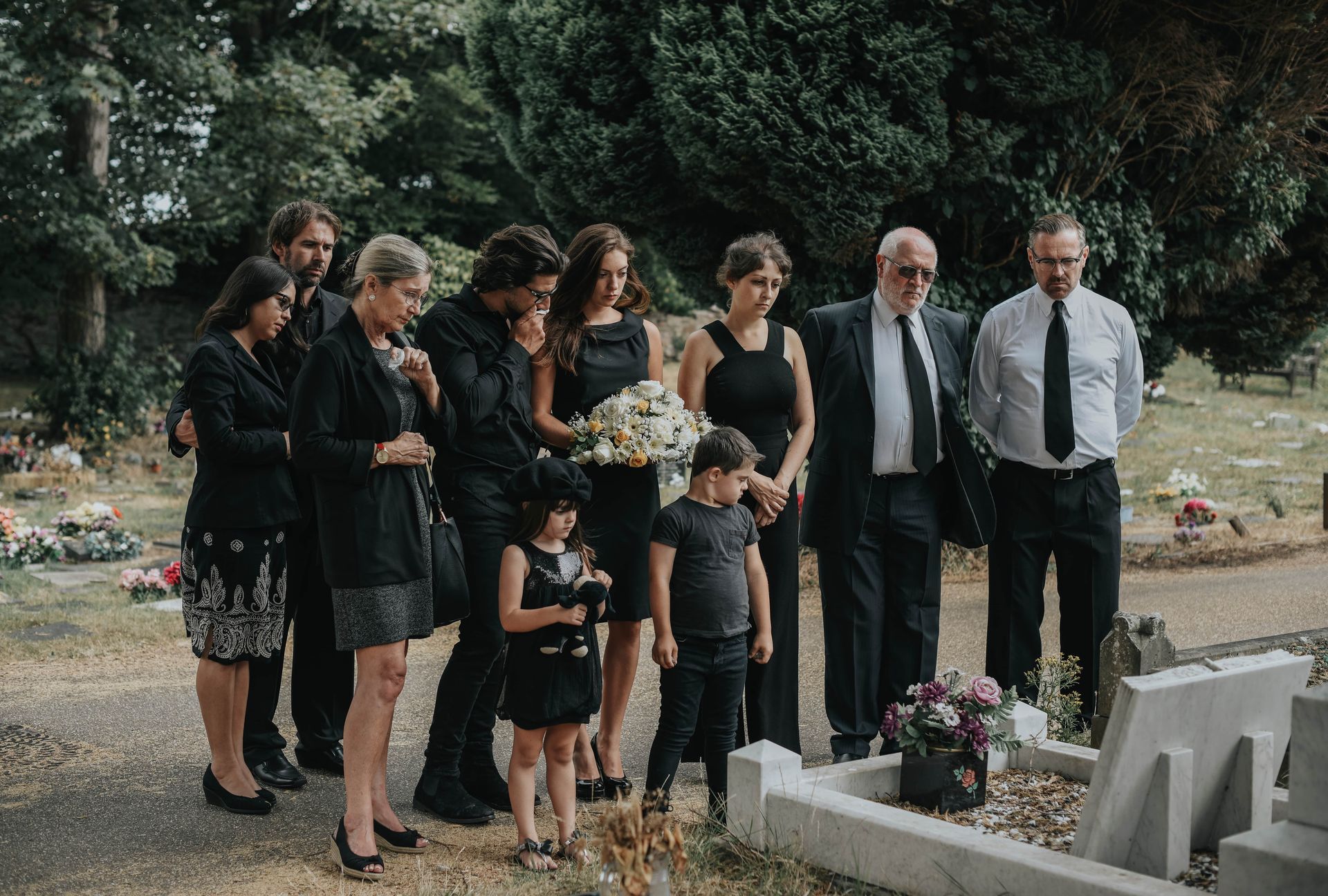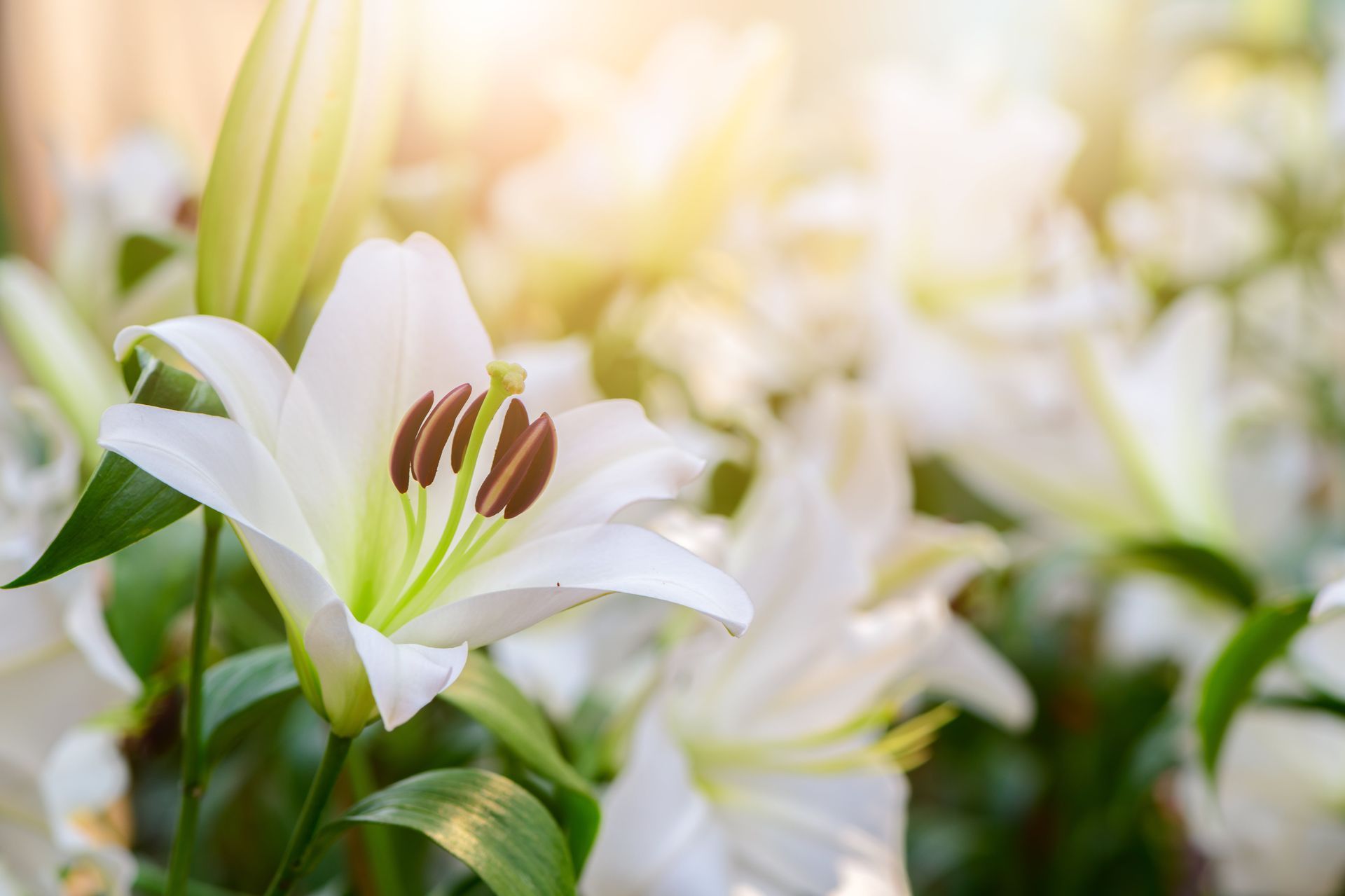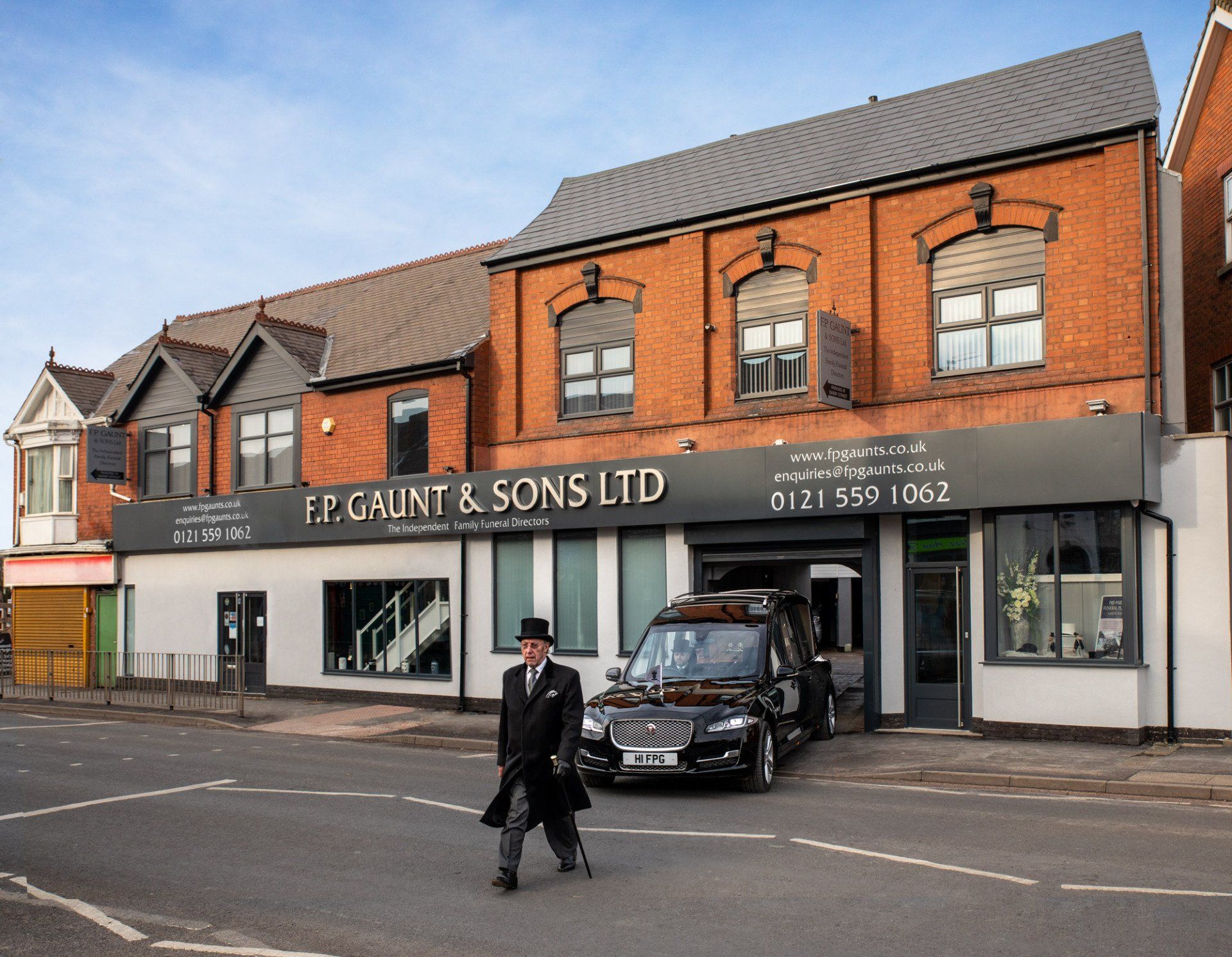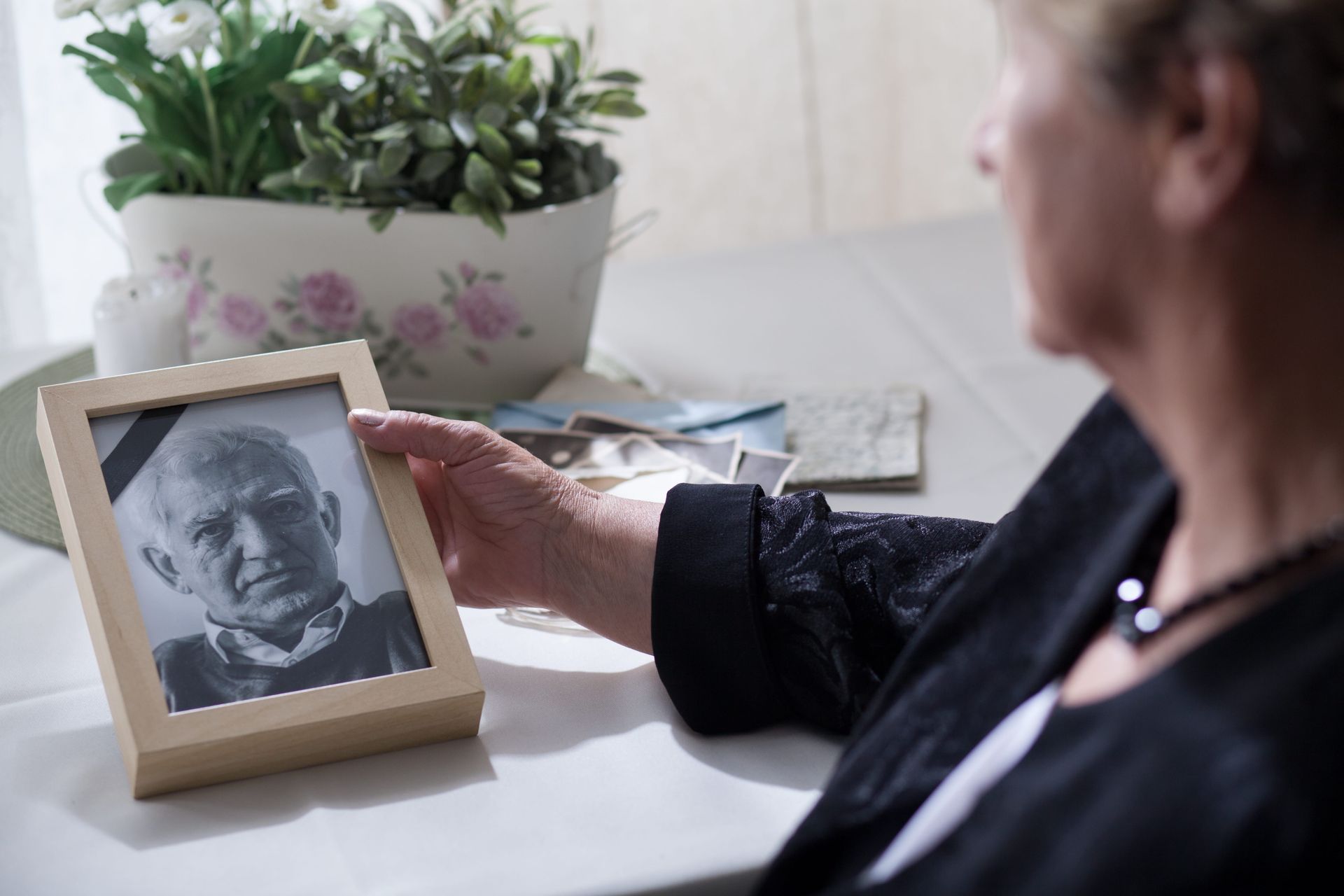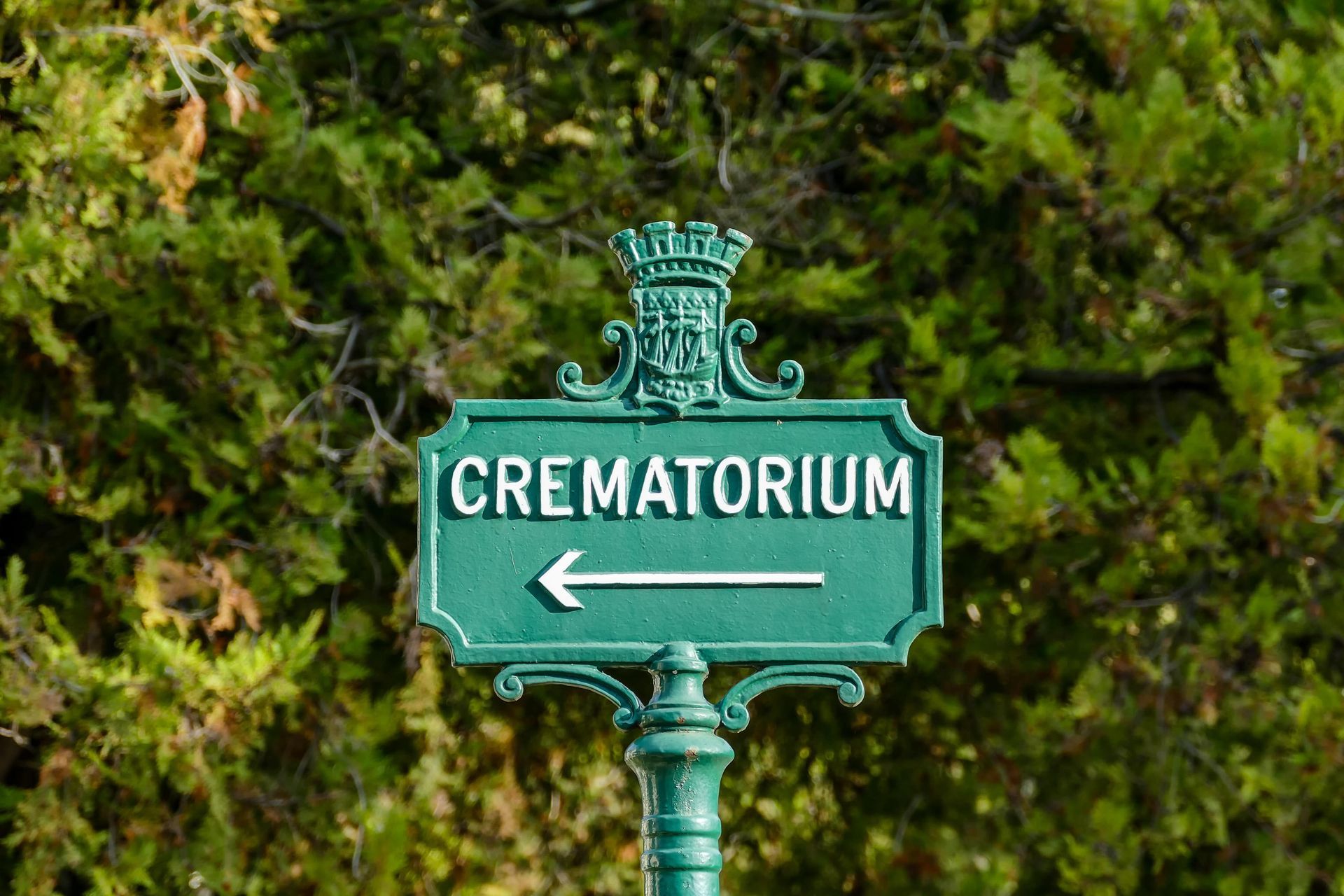Understanding the Different Types of Funerals
Burial, Cremation, Green Funerals & More
Planning a funeral can feel overwhelming, especially when you are faced with important decisions during a time of grief. One of the first choices many families need to make is the type of funeral that feels most appropriate for their loved one. At FP Gaunt & Sons, we are here to guide you through the options available, helping you create a service that reflects personal wishes, family traditions, and cultural or religious beliefs.
Below, we explain some of the most common types of funerals to help you better understand what each involves.
Traditional Burial
Burial remains a popular choice in the UK. After a funeral service, the coffin is laid to rest in a cemetery or churchyard. Families may choose a headstone or memorial plaque to mark the grave, offering a lasting place to visit and reflect.
- Why families choose burial: Tradition, religious reasons, or the comfort of having a physical memorial.
- Considerations: Availability of burial plots, costs associated with grave maintenance, and local regulations.
Cremation
Cremation has become the most common choice in the UK. The service can take place at a crematorium, church, or another meaningful location before the cremation itself. Families may then decide whether to keep the ashes in an urn, scatter them in a special place, or inter them in a memorial garden.
- Why families choose cremation: Greater flexibility for memorials, often more affordable than burial, and the option of scattering ashes somewhere significant.
- Considerations: Some religious groups may not permit cremation, and it’s important to think carefully about the final resting place for the ashes.
Direct Cremation
A simple, unattended cremation with no formal service. Families may hold a separate memorial later.
- Why families choose direct cremation: A dignified, affordable option without formality, often chosen for simplicity.
- Considerations: There is no service at the time of cremation, which some families may find too impersonal.
Green & Eco-Friendly Funerals
More families are now choosing environmentally friendly funerals. These often involve natural burials in designated woodland or meadow sites, where biodegradable coffins and minimal headstones are used. Instead of a traditional memorial, a tree or natural marker may be
placed to honour a loved one.
- Why families choose green funerals: To reduce environmental impact, or to reflect a loved one’s values and connection with nature.
- Considerations: Availability of natural burial grounds in your area, and how you’d like the site to be maintained in the long term.
Humanist & Non-Religious Funerals
For those who prefer a non-religious ceremony, a humanist or civil funeral focuses on celebrating the life of the person who has passed, often with personal readings, music, and tributes.
- Why families choose this option: To honour a loved one’s life story in a personal and meaningful way, without religious elements.
- Considerations: These services can be held almost anywhere, from crematorium chapels to outdoor spaces, offering flexibility for families.
Celebration of Life
A more uplifting alternative to a traditional funeral, often with music, photos, and storytelling to highlight happy memories.
- Why families choose celebrations of life: To focus on joyfully remembering their loved one.
- Considerations: Usually held after cremation or burial, requiring separate planning and costs.
Memorial Service
Held after a burial or cremation, a memorial service allows families to gather at a later date.
- Why families choose memorial services: Flexibility in timing and location, especially helpful when relatives are travelling.
- Considerations: As the coffin or ashes are not present, some families may find this less traditional.
Religious Funerals
Faith-based services follow religious customs, with practices differing between Christian, Muslim, Hindu, Jewish, Sikh, and Buddhist traditions.
- Why families choose religious funerals: To honour faith and cultural traditions.
- Considerations: Each religion has specific requirements, such as burial within 24 hours for Muslims or cremation for Hindus, which must be carefully followed.
Military Funerals
For those who served in the armed forces, a military funeral may include a flag-draped coffin, the Last Post, or official regimental honours.
- Why families choose military funerals: To formally honour a loved one’s service and sacrifice.
- Considerations: Military honours need to be arranged with the relevant authorities in advance.
Home Funerals
Families may choose to care for their loved one at home, with the funeral or farewell taking place in familiar surroundings.
- Why families choose home funerals: To create a deeply personal and intimate farewell.
- Considerations: Legal in the UK, but they require careful planning and often professional support for practicalities.
Choosing the Right Funeral
With so many options available, the right choice depends on personal wishes, faith, budget, and the values of the person being remembered.
At FP Gaunt & Sons, we are here to support you every step of the way, helping you arrange a service that is dignified, personal, and meaningful.
If you’d like to discuss funeral options in more detail, please contact FP Gaunt & Sons. Our caring and experienced team is always here to guide you with compassion.

